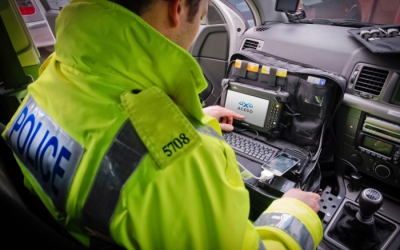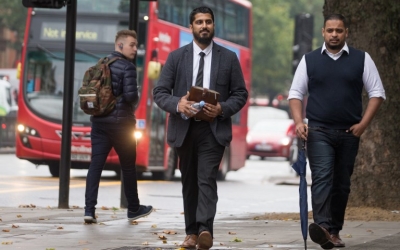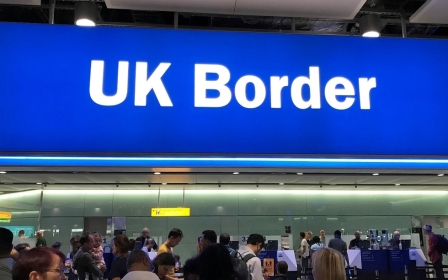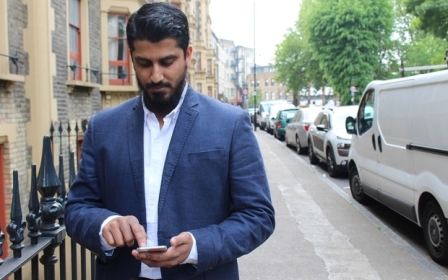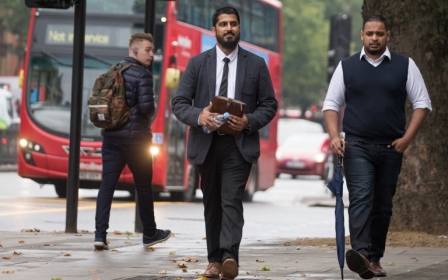UK authorities log religion of people stopped on country's borders, form reveals
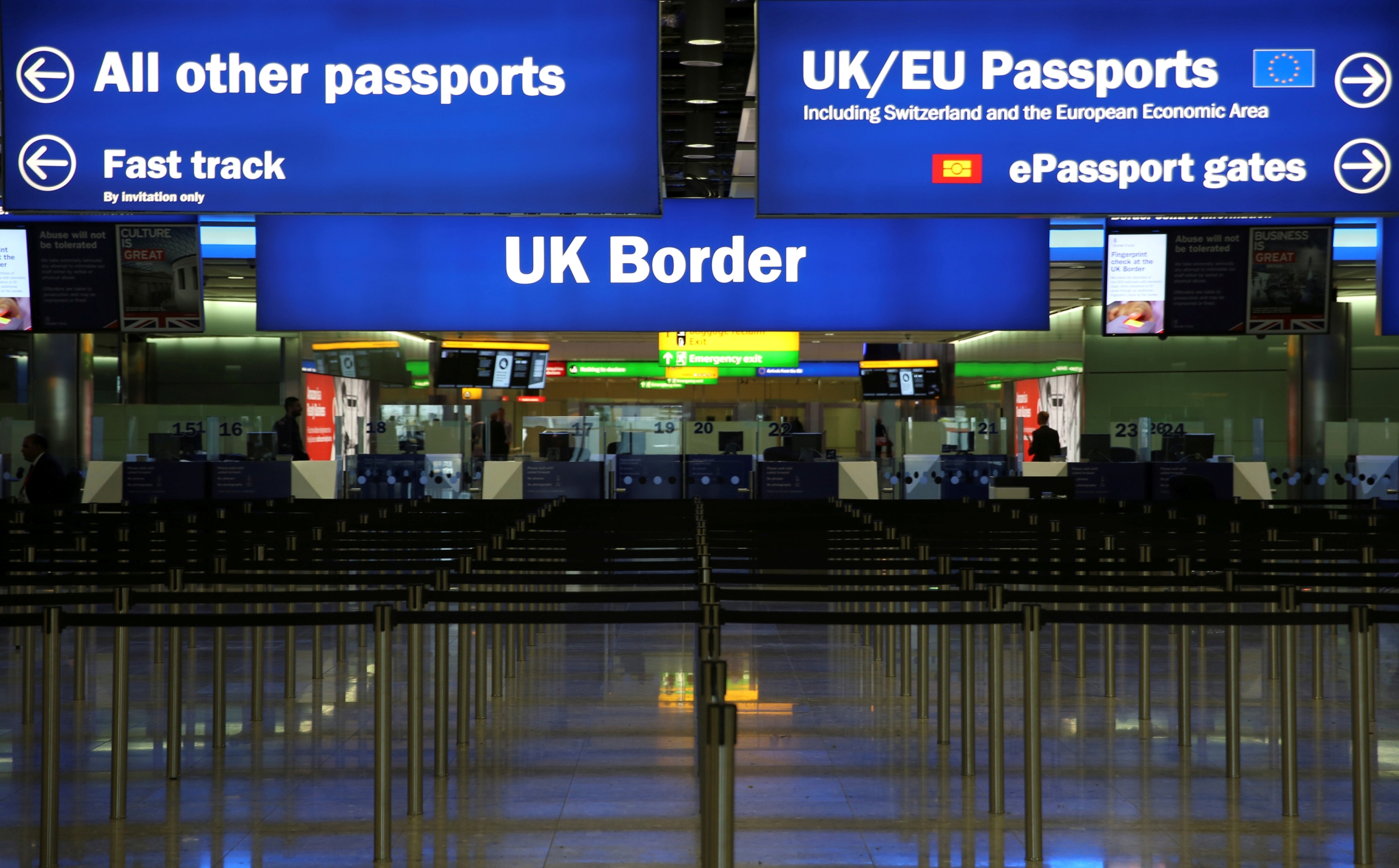
The UK government has been pressed to disclose the number of Muslims stopped on its borders, after evidence emerged revealing that police are required to record the religious identity of individuals detained using controversial counterterrorism powers.
A registration form, seen by Middle East Eye, that is used by UK security authorities to log details of people they stop under Schedule 7 of the UK Terrorism Act prominently includes a section to record the subject's religion.
However, British authorities have previously insisted that no such information is recorded.
The form was part of a package of evidence given to Muhammad Rabbani, the international director of human rights group Cage UK, when he was prosecuted for refusing to hand over the password to his computer during a Schedule 7 stop.
Schedule 7 allows British police to stop any individual they suspect of engaging in acts of terrorism for a maximum of six hours in ports and airports across Britain. Detainees have no right to silence and must hand over their computers, passwords, and phones, and give fingerprints and DNA when requested, or face possible arrest.
The UK Home Office has previously denied that it records religious identity during its Schedule 7 stops, despite releasing regular statistics of the individuals it stops on its borders.
Among the data given by the UK Home Office are a breakdown of statistics related to the ethnicity of individuals stopped under Schedule 7. Critics argue that the police have purposely suppressed this data due to fears of being labelled racist.
Rabbani, who himself has been stopped over 20 times under Schedule 7 powers, said the release of data related to religion will be a "damning indictment".
"Data on religion has been repeatedly suppressed by the Home Office. We believe if released it will be damning in its indictment that Schedule 7 powers are indeed Islamophobic," Rabbani told Middle East Eye.
"Documentation obtained during court proceedings shows data on religion is recorded. It's now time the Home Office comes clean with it."
'Damning indictment'
Despite the form's circulation, the Home Office denied to MEE that it holds data on the number of Schedule 7 stops categorised by religion. However, it refused to elaborate further on the form or its use.
A Cambridge University study from 2014 found that 88 percent of people it interviewed who had been stopped under Schedule 7 at a particular airport were Muslim.
Since 2009, only 30 people have been convicted following Schedule 7 stops, despite authorities stopping 419,000 people on borders across Britain, making the conviction rate 0.007 per cent.
Last year, the European Court of Human Rights ruled that Schedule 7 was a violation of human rights.
This latest call for the UK government to disclose the number of Muslims it stops comes after Cage UK released a report this week claiming that Schedule 7 is disproportionately used against Muslims.
One woman told Cage UK that British police demanded she took off her hijab, while another individual was stopped several times under Schedule 7 and asked about his views on Islam and global political affairs.
Responding to claims made by Cage UK's report, a Home Office spokesperson described the use of Schedule 7 as "vital to the police in their work to combat terrorism".
"The authors of this report are clearly misrepresenting facts to fit their own predetermined conclusions," the Home Office spokesperson told MEE.
The spokesman pointed to a 2014 report compiled by David Anderson QC, the former independent reviewer of terrorism legislation, which found no evidence of the power being exercised in a racially discriminatory manner.
"He also said that one would expect its exercise to be ethnically 'proportionate' to the terrorist population that travels through UK ports," the spokesman said.
Middle East Eye delivers independent and unrivalled coverage and analysis of the Middle East, North Africa and beyond. To learn more about republishing this content and the associated fees, please fill out this form. More about MEE can be found here.


